More Board Game Education
More Board Game Education
Inspiring Students Through Board Games
Jeffrey P. Hinebaugh
ROWMAN & LITTLEFIELD
Lanham Boulder New York London
The CONNECT 4 name and images are property of Hasbro, Inc., used with permission.
Copyright 2018 Hasbro, Inc.
The TICKET TO RIDE name and images are property of Days of Wonder, Inc., used with permission.
Copyright 2018 Days of Wonder, Inc.
The OTHELLO name and images are used with permission from Megahouse Corporation. The OTHELLO name and images are copyright and trademark protected and owned by Othello Co. and Megahouse Corporation.
The SETTLERS OF CATAN name and images are property of Catan Studio, Inc. and its licensor Catan GmbH.
Copyright 2018 Catan Studio, Inc. and Catan GmbH.
Published by Rowman & Littlefield
An imprint of The Rowman & Littlefield Publishing Group, Inc.
4501 Forbes Boulevard, Suite 200, Lanham, Maryland 20706
www.rowman.com
6 Tinworth Street, London SE11 5AL, United Kingdom
Copyright 2019 by Jeffrey P. Hinebaugh
All rights reserved . No part of this book may be reproduced in any form or by any electronic or mechanical means, including information storage and retrieval systems, without written permission from the publisher, except by a reviewer who may quote passages in a review.
British Library Cataloguing in Publication Information Available
Library of Congress Cataloging-in-Publication Data Available
ISBN 978-1-4758-4833-5 (pbk : alk. paper)
ISBN 978-1-4758-4834-2 (electronic)
 The paper used in this publication meets the minimum requirements of American National Standard for Information SciencesPermanence of Paper for Printed Library Materials, ANSI/NISO Z39.48-1992.
The paper used in this publication meets the minimum requirements of American National Standard for Information SciencesPermanence of Paper for Printed Library Materials, ANSI/NISO Z39.48-1992.
Printed in the United States of America
Contents
For those who read my previous book, A Board Game Education , and for those that are simply curious, you may be asking a fair question: What makes the board games in this book so special as to warrant a new book? The board games discussed in this book are unique in that they develop core educational skills across all disciplines. They are not simply math or logic games, but combine learnings in math, language arts, problem-solving, reasoning, social sciences and communications. They are the super foods of the board game world!
The research and studies published since my last book confirm the importance of developing core educational skills in students at an early age. The dilemma continues to be how to best accomplish this goal, especially for at-risk students and students from challenged families. The board games discussed in this book are not only widely accessible to most families and teachers, but they are the perfect tools to help accomplish the goal of developing these critical educational skills at an early age. What is also really unique about the board games in this book is that they span the ages, from Backgammon invented more than 5,000 years ago to Ticket to Ride published in the last fifteen years. With these games, there is something for everyone.
A final note about what this book is not. It is not a strategy book about how to best play any of these games to win, although by focusing on the educational components of each game players will become quite good at each game. This book is also not an analysis of the best board games created, the most popular board games or the most fun board games to play. There are great internet sites like Board Game Geek for these types of discussions and forums. The board games discussed in this book are included because they are widely popular and therefore generally accessible to most parents and school teachers at reasonable prices. Most importantly they develop critical educational skills and are fun to play!
As with any endeavor there are a number of people to thank for their support. Marie Kimura with MegaHouse Corporation provided invaluable feedback, information, and advice with respect to Othello. Similarly, a big thank you to Kathy Carpano and Hasbro for providing information and images for CONNECT 4. Thank you to the critical studies and behavioral science departments at the University of Cincinnati for their feedback, suggestions, and insights. Finally, thank you again to Linda Drake for her editing and proofreading of the manuscript.
Your Ticket to Ride all the Way to Harvard
Okay, I will admit that this subtitle might be a bit overstated. Plus, in our house Harvard is known as the Michigan of the East. In any event, research and studies over the past thirty years continue to support the fact that the educational skills developed and practiced through the play of board games unequivocally leads to academic success. Moreover, these very same skills have also been identified as crucial for career success. So how, you might ask, does playing CONNECT 4 lead to the corner office? Read on!
The idea that developing math and reading skills at an early age will prove beneficial is hardly a new or controversial topic. However, utilizing tools that not only develop math and language arts skills, but also develop skills in reasoning, strategic thinking, problem-solving, economics, geography, sociology, history, and communications has been found to create exponential learning achievement. Stated another way, by identifying activities that require students to use and learn multiple skills the students development and retention of all the skills are enhanced. And guess what? Some of the best tools to develop these very skills are the board games discussed in this book.
Problem-Solving, Strategic Thinking, and Reasoning Skills
Problem-solving is the foundation of all early education and learning. Strategic thinking and reasoning are two of the main components in problem-solving. Reasoning is the process of drawing conclusions from information. Importantly, the reasoning process always requires going beyond the known information. As students become more comfortable with drawing conclusions or inferences without complete information by drawing on past experiences, their problem-solving abilities increase.
Recent studies researching effective methods for teaching problem-solving in early childhood education found that students who developed problem-solving skills in elementary school were 40 percent more likely to achieve academic success in high school than those students who did not develop problem-solving skills. The ACT Research and Policy Center has found that two of the most important skills for achieving high standardized test scores are problem-solving and strategic thinking.
The importance of problem-solving skills for achieving academic success in high school as well as college was also confirmed by a 2012 Michigan State University study that found students who developed problem-solving skills by high school had greater academic success in high school and were better prepared for college. Indeed, Japan intentionally and publicly shifted its public education policy in 2007 from memorization-focused education to problem-solving-focused education. Moreover, by developing problem-solving and strategic thinking skills students also develop corresponding academic behaviors, such as persistence, cooperation, teamwork and rule compliance, which have been identified as critical behaviors for work place success. (Casner-Lotto & Barrington, 2006; Hanson & Borman, 2006).
While the importance of developing problem-solving skills, strategic thinking and reasoning is not really contested, the problematic issue is how to best teach these skills. After all, lectures and books on reasoning, logic, and problem-solving are best saved to cure insomnia. However, teaching these skills through tools which also integrate other core educational skills such as language arts, math, geography, history, and economics engages and empowers students. And it just so happens that the board games discussed in this book do just that!

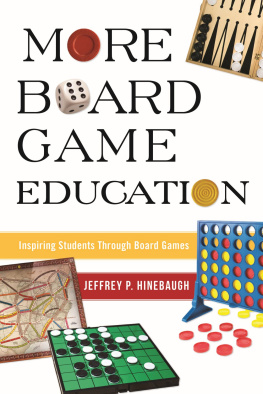
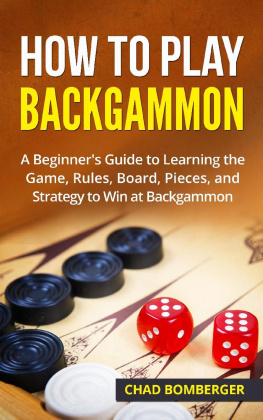
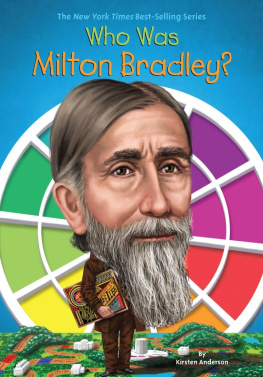

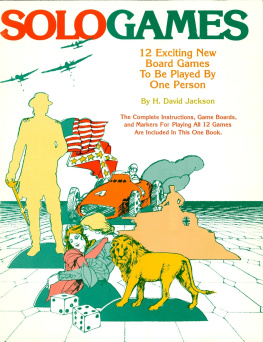
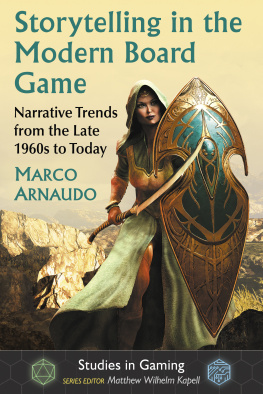

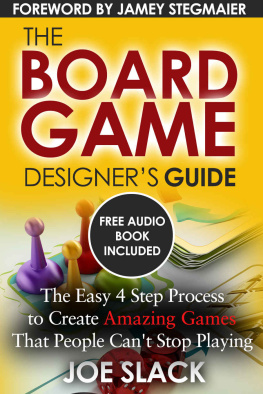
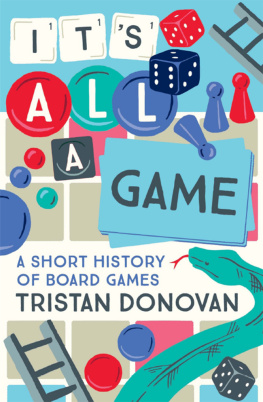
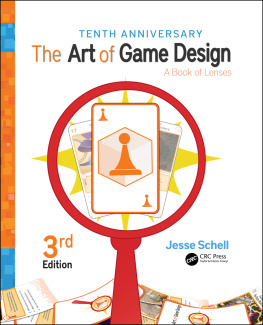

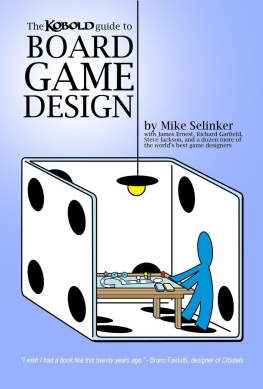

 The paper used in this publication meets the minimum requirements of American National Standard for Information SciencesPermanence of Paper for Printed Library Materials, ANSI/NISO Z39.48-1992.
The paper used in this publication meets the minimum requirements of American National Standard for Information SciencesPermanence of Paper for Printed Library Materials, ANSI/NISO Z39.48-1992.